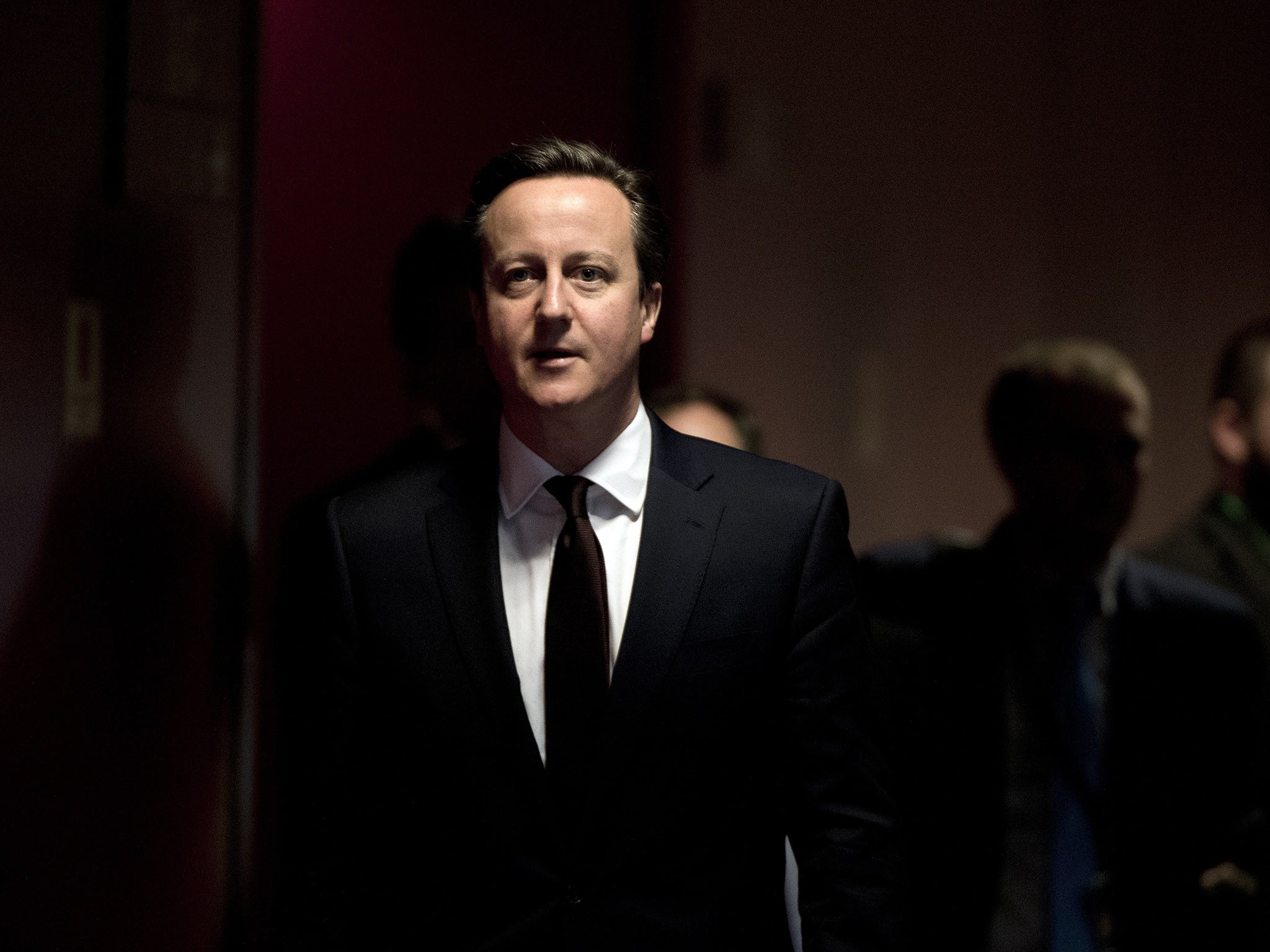Will anyone ever identify as a Cameronite?
It seems unlikely – it's almost impossible to find a defining moment in the Prime Minister's leadership of the country so far, or even a sense of direction

Your support helps us to tell the story
From reproductive rights to climate change to Big Tech, The Independent is on the ground when the story is developing. Whether it's investigating the financials of Elon Musk's pro-Trump PAC or producing our latest documentary, 'The A Word', which shines a light on the American women fighting for reproductive rights, we know how important it is to parse out the facts from the messaging.
At such a critical moment in US history, we need reporters on the ground. Your donation allows us to keep sending journalists to speak to both sides of the story.
The Independent is trusted by Americans across the entire political spectrum. And unlike many other quality news outlets, we choose not to lock Americans out of our reporting and analysis with paywalls. We believe quality journalism should be available to everyone, paid for by those who can afford it.
Your support makes all the difference.Only four months ago, David Cameron was on the crest of a wave. He had just guided his party to their first parliamentary majority of this century, and his opposite numbers from across the dispatch box were falling over themselves to leave office. Granted, Labour is still in turmoil. In-fighting continues to damage the party’s attempts to restore its reputation, but Cameron is no longer surfing the waves of electoral success, or even the one-footers of Cornwall on his summer holidays.
Having spent the period since the election in the shadow of his chancellor and likely successor, George Osborne, he is now engulfed by a tide of discontent from parts of the press over his handling of the current refugee crisis. His reactive approach epitomised an administration driven by pragmatism over principle and there is every chance the ill-feeling it has generated will linger for longer than a few months. There is every chance that this could come to define his premiership.
After some initial hesitation, the PM appeased some of his critics last week by announcing that Britain would take an extra 20,000 Syrian refugees fleeing the civil war. But some of the shine was taken off his declaration by rumours that the youngest of these will be deported when they reach 18. The realisation also dawned on some that Cameron was proposing to welcome just 12 refugees per day until the start of the next parliament in 2020. Indeed, it is the kind of belated and modest proposal which rather symbolises a spell as Tory leader which has lacked clear direction and a defining moment.
How would you explain Cameronism? Will we see a prospective Conservative leader being described as the Cameronite option? Unlike Tony Blair or Margaret Thatcher, whose names have outlived their premierships in ideas and ideology, the current Prime Minister has been more pragmatic than proactive.
Of course, his hand has been forced somewhat by the country’s economic situation and it would be unfair to totally ignore his achievements as the leader of the Conservatives. He rescued a divided party from the doldrums of British politics under Iain Duncan-Smith, securing two terms in office and a parliamentary majority many thought was beyond them – particularly after their failed attempts to change constituency boundaries in the last parliament.
Whether you agree with his economic policies or not, since arriving at Number 10 his governments’ single-minded attempts to reshape the economy have produced some of the fastest rates of growth in the G7. On the big issues, though, he has tended to dither and then drift with the tide of outside opinion. On Europe, a topic which has long divided his party for example, the decision to hold a referendum on the country’s relationship with the EU was more a result of UKIP’s surge than his own political fortitude. Now on the current refugee crisis, his modest proposal comes after pressure both at home and abroad. Cameron is not a sadist and nor is he committed to simply condemning refugees to further misery. He just does not seem to have grasped the severity of a situation which is forcing people to risk their lives to come from the Middle East and North Africa to Europe.
Perhaps hindsight will prove him right. Perhaps the government’s solution to the Syrian crisis, which looks increasingly likely to involve direct air strikes, will prove critical in the defeat of Isis, but that argument has little popular support at the moment. Cameron undoubtedly hopes this will become his version of the Falklands, when Thatcher overcame initial scepticism to secure both military and political victory. More likely, it will become his Iraq, undoing his attempts to present the Conservatives as the nasty party no more and tarnishing his reputation forever. After his proactive intervention in Libya, the aftermath of which is still being felt in Calais, Cameron has reverted to type. On the refugee crisis, he has danced to the tune of opinion in an archetypal manner, and one which could come to define his tenure as Prime Minister.
Join our commenting forum
Join thought-provoking conversations, follow other Independent readers and see their replies
Comments